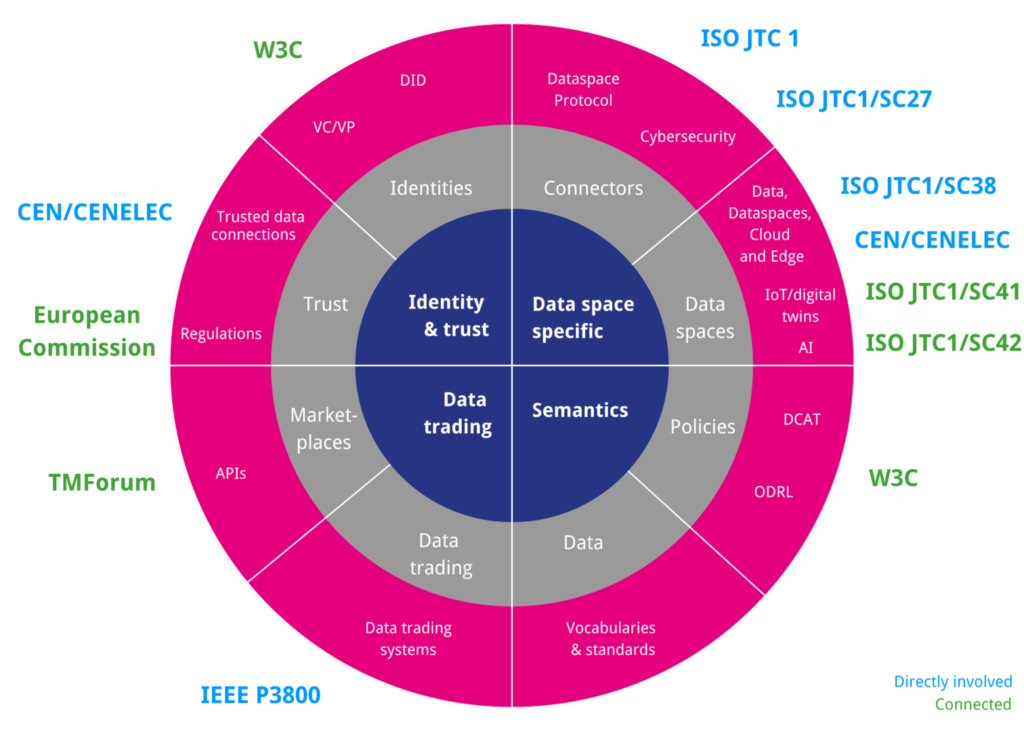International standards are indispensable in facilitating collaboration. They play a critical role in promoting interoperability, breaking down technical barriers, and fostering cross-border trade. Adhering to these common standards enables businesses to streamline their operations, tap into global markets, and provide top-notch products and services to consumers. Recognizing the importance of aligning with standardization bodies like ISO, CEN/CENELEC, IEEE and W3C, we are committed to advancing global standards for data sharing.
Our drive for global standardization
Our commitment is driven by the dedicated efforts of IDSA members and technical staff who actively participate in standards committees. From observing to leading these committees, we build strategic partnerships with key standardization bodies, advising the European Commission on advancing global standards for data spaces. Leveraging assets such as the IDS Reference Architecture Model (IDS RAM), the IDS Rulebook, and the Dataspace Protocol, we contribute to developing essential technical specifications for implementing data spaces.
European standardization initiatives
Within the European context, regulations like the Digital Markets Act (DMA), Data Governance Act (DGA), Data Act and AI Act emphasize the need for tailored standardization efforts. Collaborative research with CEN/CENELEC is important in addressing these specific standardization needs and strengthening Europe’s digital economy. Initiatives like the CEN/CENELEC Focus Group on “Data, Dataspaces, Cloud, and Edge” and the proposed Technical Committee on Data Management, Data Spaces, Cloud, and Edge Computing are instrumental in shaping European standardization policies.

Collaboration with the European Commission
The IDSA collaborates closely with the European Commission to align standardization efforts with EU policy priorities. The Data Spaces Support Centre (DSSC) collaborates with the European Data Innovation Board to recommend guidelines for unified European data spaces. By enhancing data interoperability and ensuring compliance with data protection regulations, these efforts contribute significantly to the EU’s digital transformation agenda.
Our collective commitment to driving global standardization in data spaces paves the way for a more connected, efficient, and innovative future for businesses and societies worldwide.



